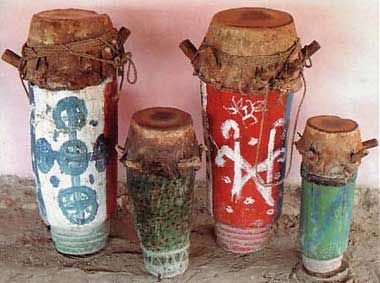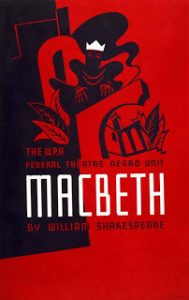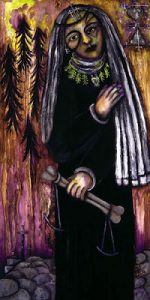
It’s been over a year since election night, 2016. Some cried when a merciful soul switched off the tube. Some mumbled and muttered like zombies, others laughed in the high registers of hysteria or sat muted, numbed, in shock.
"Oh, I think the Haitians know how to take care of themselves."
We had no idea how this election had gone wrong but we knew we had suffered a terrible blow. We tried to breathe, but the post-election air carried the smell of smoke and the acrid stench of burning hazardous materials.
True, we’ve seen much to hope for in the ensuing year: A new, grass-roots resistance movement exploded on the post-inaugural landscape. A powerful investigation now rumbles toward proof of obstruction and complicity with a Russian electoral hack. The obscene mouthpiece of this insidious governmental overthrow will possibly be removed in handcuffs, a straitjacket, or a stretcher.
But we have grown weary of waiting for the shoe to drop. We are beaten and abused on a daily basis by the confounding behavior of the President and the ominous power of a rudderless Congress, a stacked court, and a Cabinet full of predators.
Out of necessity, we have developed defense mechanisms: Turn a blind eye. Fight like hell. Run for office, meditate. Necessity has never been more inventive. Perhaps it’s also time to celebrate the impulse to conjure, imagine, invoke.
One year since the inauguration of this fake President, intruder Trump’s shit-for-brains remarks about AIDS in Haiti and his dismissal of ‘shithole’ African nations prompted me to revisit a little-known tale that periodically circulates through the theater community.
 In 1936, an ambitious young Orson Welles conceived a radical version of Shakespeare’s ghostly M-cbeth. Welles auditioned and hired an all-black cast and set the jinxed and bedeviled play in a fictional 18th-century nation modeled on Haiti. Integral to the production was a troupe of Haitian voudon drummers and singers.
In 1936, an ambitious young Orson Welles conceived a radical version of Shakespeare’s ghostly M-cbeth. Welles auditioned and hired an all-black cast and set the jinxed and bedeviled play in a fictional 18th-century nation modeled on Haiti. Integral to the production was a troupe of Haitian voudon drummers and singers.
Welles and producer John Houseman mounted the controversial production at the Lafayette Theater in NYC with full support of the WPA and the Federal Theater Project. The voudon production received critical acclaim despite its radical, re-contextualized interpretation of Scottish witchery.
One critic, however panned the vulnerable production mercilessly, revealing his racist bias. That night, M-cbeth’s Haitian drummers remained in the darkened, post-show theater, singing, dancing, and chanting until dawn. Shortly thereafter, the critic was found dead in bed without a mark on him.
Many cultures consider coincidence as a random phenomenon. Other cultures perceive authentic, other-worldly connections between coexisting people, places, and events and often act upon these more subtle constructs.
From one perspective the Haitians and the critic had no causal connection. From another perspective, the midnight dance in the Lafayette theater and the critic’s death were linked through aché, a mystical life force that permeates the Universe. Without aché, no life could exist.
With this feces-slinging Bonobo despoiling our spirits from a defiled White House, I’m driven to recall the tremendo aché that vibrated between the critic and the Haitian musicians of Welles’ M-cbeth.
 The spirit of aché creates, connects, and enlivens all creatures and things at all times. We may not have gotten it right yet, but, when asked how Haitians are impacted by Trump’s words, a friend, an ordained Yoruba priestess from New Orleans, nodded her head, and said, ‘Oh, I think the Haitians know to take care of themselves.”
The spirit of aché creates, connects, and enlivens all creatures and things at all times. We may not have gotten it right yet, but, when asked how Haitians are impacted by Trump’s words, a friend, an ordained Yoruba priestess from New Orleans, nodded her head, and said, ‘Oh, I think the Haitians know to take care of themselves.”
Writer, editor, and educator based in Los Angeles. He's also played a lot of music. Degelman teaches writing at California State University, Los Angeles.
Degelman lives in the hills of Hollywood with his companion on the road of life, four cats, assorted dogs, and a coterie of communard brothers and sisters.



I LOVE THIS! With its look back to the 1936 production of the Scottish play and the mystical death of that critic, your choice of topics could not be more apropos for the moment. Can we all learn to chant?
Thanks, Betsy! Rituals are most successful when the larger community chimes in. Here’s a link to a brief discussion of Voudon chants written by a Haitian curator. Rock out!
Love this (melodic-sounding) concept of “tremendo ache,” without which no life could exist. Perhaps we could hashtag a vibration between the resistance and our president to similar end! However, I must object to your equating Bonobos with our foe. They are the much smarter and more peaceful cousins of Pan troglodytes, whose behavior is often characterized as “make love not war” because of their use of sex to defuse conflict.
Thank you, Patricia. I like the hashtag thing and it reads well: #tremendoaché I’ll use it for my next post. I have been a bonobo fan but was somewhat taken aback by a study revealing that bonobos like bullies. Ah, well, life is complicated; it’s difficult to find an animal analog for the Orange Contusion that doesn’t insult the dignity of the creature compared. Soon, Patricia, soon!
I love the idea that the Haitians know how to take care of themselves and hope they will do it soon. Meanwhile I will put my hopes in the Mueller commission and the noose that is closing slowly, slowly around an orange-tinged neck.
Charles is an amazing wonderful writer but to weave anthropologic hope with the crisis of our times is a tour de force of hope. Who knows, we imagine and it may happen. In any case, this story illustrates hope and that translates into peaceful organization and action. That we need. Thank you, Charles.
Thanks for your good thoughts, helenmarion. My hope for juju in this realm is based on personal experience, when we levitated the Pentagon in 1967. True, Abbie Hoffman and Jerry Rubin were loveable charlatans, but I do recall watching the Pentagon rise, rupturing its power and water, pipes and wires dangling, while our peers, our brothers (not sisters) confronted us with rifles and bayonets. Hope springs eternal.
Wonderful story. Your introductory paragraphs succinctly encapsulated election night 2016 and the year that followed. And then the Orson Welles and the voudon drummers story provided a potential solution to our national tragedy. I think we need to learn that chant by this Saturday, for the Women’s March!
Mother Brigitte! My mother!
Oh! See that?
Around the house,
There’s a fire in it.
We gather wood
To build a fire;
We gather water to
Extinguish the fire.
The rain does not fall.
Don’t you see?
The ground is slick.